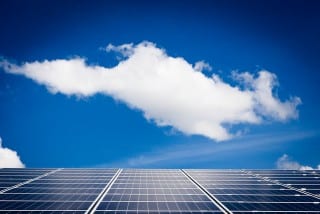Last week’s commentary
by Tosh Szatow , warning people to beware the solar PPA bogeyman, achieves two things worthy of rebuttal.
Firstly, it entrenches a lack of financial understanding in the solar industry – which is a handbrake to future development; and it portrays PPA (power purchase agreement) providers as greedy capitalists seeking to get their paws on the home-made solar industry – rather than a significant development in the long-term sustainability of the solar industry.
The main thrust of Szatow’s argument can be summarised as ‘you are better off buying your own solar system rather than using finance to pay as you go’. This presents the first fault of his logic – not all businesses have the capital required to make the investment. I’d be interested to know whether he also opposes taking on a home mortgage in favour of ‘just paying for the house with cash’.
The second fault is his assertion that an 8% return on investment for an SME is acceptable. As a business owner, if I wanted 8% returns I would simply invest in a portfolio of blue-chip stocks and would regain a) my sleep, b) my weekends, and c) my sanity.
As many readers of this publication would attest, owning and running an SME is decidedly risky and therefore business owners should expect higher returns. Typical target ROIs for SMEs in Australia range from 15-40%. Taking money out of your regular business investments (which should be earning >15%) to invest in solar power (which would be earning <15%) is an act of financial detriment to the business owner.
Using OPM (other people’s money) to boost your company’s earnings on a relatively low-risk investment like solar power is an easy strategy to success – just ask the millions of Australian’s who negatively gear their properties.
The truth about Solar PPA is it offers another sales arrow in the marketing quiver of the solar industry. It opens up opportunities for businesses that do not have, or do not wish to allocate, scarce capital to solar power projects. It also better manages risk. I’m yet to meet a solar salesperson that doesn’t insist they only use the ‘quality panels, not like that other mob’.
The development of the Australian PPA product market is a vote of confidence in the future of the solar industry and represents an avenue for growth which is not so dependent on Government handouts.
Szatow could have better spent his efforts helping the solar industry understand when and where a PPA makes sense for customers. Hell knows the solar industry has enough cowboys to remake every John Wayne movie thrice over, so what should one watch out for when examining the PPA landscape?
1- Look out for solar leases masquerading as PPAs. A true PPA product will charge based on actual kWh production. Some Clayton’s PPA products charge a set monthly rental regardless of production and should be more accurately described as an operating lease.
2- Only deal with a regulated provider. In almost all states and territories of Australia it is a crime to sell electricity without an electricity retailer licence or an exemption from holding such a licence. Ask to see your provider’s paperwork to ensure they are compliant.
3- Always insist on a National Measurement Institute pattern approved metering solution. Billing for production off the solar inverter is fraught with risk and may breach the National Measurement Act 1960. Think ‘thumbs on scales’.
4- For solar retailers, think long and hard about going down the PPA path on your own or partnering with an existing ‘third-party’ provider which lets you focus on your core business.
Solar PPA has the potential to offer a win-win-win scenario for end customers, solar retailers and the solar finance industry. Tarring a sector of the industry that offers a genuine and long-term benefit helps no-one.
Jeffrey Bye is an Australian solar professional, based in Singapore and with an interest in the Australian PPA market.











